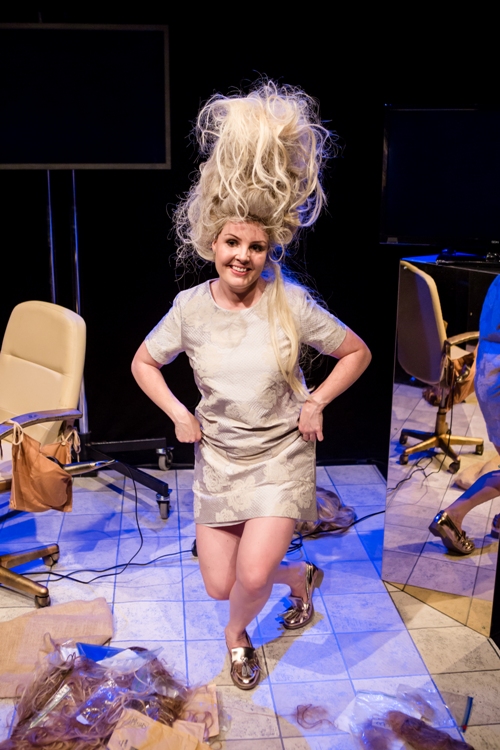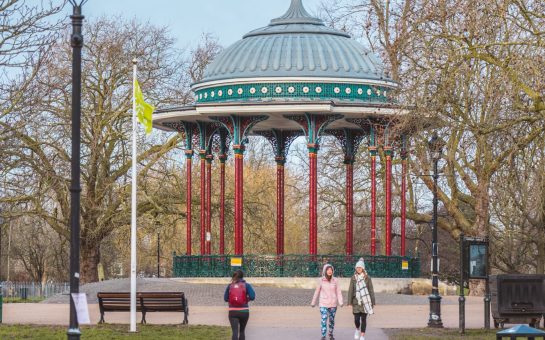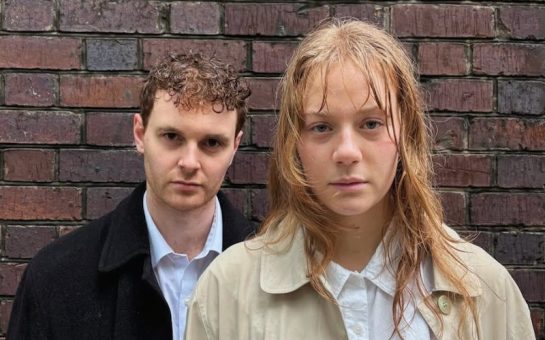The human hair market has grown exponentially and while some find the idea repulsive, hoards of British women are paying thousands of pounds to pad out their locks with extensions from the heads of other women.
Comedian-cum-anthropologist Victoria Melody set out to find out where this bodiless, anonymous hair comes from, after immersing herself in the plastic world of beauty pageants and being told that her natural hair could do with some help.
Bowing to pageant pressure she agreed to have a full set of hair extensions but was shocked when she was told that she was wearing real hair.
Inspired by the mystery of the mock mane, she began tracing the supply chain back to its roots which led her to South Indian temples and rural Russian villages.
Her research has inspired her ‘theatrical-stand-up comedy-documentary-film-show’ Hair Peace which is taking centre stage at Battersea Arts Centre this week.
“The most interesting thing about the show is that you take a subject which seems quite banal and boring you scratch the surface and it just unveils all these stories about religion and ethics and diverse culture and global economy,” Victoria explained as she sank into the deep leather sofa of her Brighton townhouse.
During her beauty queen tenure, in which she was crowned Miss Brighton, Victoria was given three different sets of hair extensions; one Russian, one Indian and one that even the forensic department at King College London were unable to place… curiouser and curiouser.

‘SEX HAIR’: Victoria and the golden get-out-of-jail-free locks
As Indian hair bears the most resemblance to Caucasian hair in texture, it is the most popular UK import.
Victoria established that it is obtained by women saving the hair from their hairbrushes which is then painstakingly straightened by cheap Indian workers or alternatively from hair sacrifices in Hindu temples.
Fascinated by what motivates these spiritual head shavings she went on a pilgrimage with a South Indian woman planning to give up her hair as a mark of thanks the gods.
Women, men and children head to majestic temples to humble themselves by shaving off their hair, often unaware their offering is collected, sorted and auctioned off to the highest bidder.
She explained: “It’s like they’re sacrificing their ego, which is hilarious, because they are sacrificing their ego to make our ego bigger by wearing the hair.”
The moving and romantic setting of the colourful Indian temple, with its chanting and monkeys and painted elephants was in stark contract to the harsh snow of Russia where hair was collected in cold, hard cash transactions.
It’s clear from her change in tone that not all of these exchanges sat right with her conscience and that the ethics of the industry were questionable at times.
The disparity between what British women pay for the hair and the amount the Russians were reimbursed was huge.
Victoria told me about one Russian woman who had spent 19 years growing out and caring for her hair only to sell it on for £30, when someone in London would have paid in the region of £1,000 to have it re-attached to their own head.
“The girls said to me that £30 is enough to pay for her driving lessons so it’s relative to the country. It’s always ambiguous isn’t it?” she said with a disheartened smile.
“And the temple would have been burning the hair if they hadn’t been selling it and they do invest the funds in charitable projects.
“But there is hair that is given with consent. There is a dealer that I spoke to who was offered black market prison hair on numerous occasions.
“And in Brazil there are stories of gangs going around stealing women’s hair.”
In light of this Victoria has taken her plight as far as the office for fair trade to suggest the implementation of a ‘fair trade hair trade’ system however the overwhelming response is that it would be very difficult to enforce.
But the ethics are just one part of the performance. Victoria was keen to stress to me that the show is very funny.
She pointed out that it is very definitely called Hair Peace and not ‘herpes’ as it may be pronounced in some Northern dialects.
Victoria is funny, after just an hour in her company it’s clear that she is the sort of person you want regaling you with tales at a dinner party.
As a writer/anthropologist this is not the first time she has fully submerged herself in a niche community, she has previously turned her hand to northern soul dancing, pigeon fancying and is currently training as a funeral director for an up-and-coming piece.
Not one to do things halves, Victoria also spent a year sporting a full set of striking blond hair extensions – calling it her ‘sex hair’.
The difference in her treatment was instantaneous, she was served first at the bar, told she was good-looking by strangers and people helped to carry her cases.
“I noted that the whole time I had that long blonde hair I successfully used an out-of-date rail card for a year I completely got away with it, people would say ‘oh it doesn’t matter love,’ both men and women.
“But the day I had my hair extensions out and I had the hair cut short and dyed dark I got fined on the train.”
She squirmed in her seat a little when I asked if she had changed her character in response to other people’s response to her. “I know it’s wrong because I’m a complete feminist but also I kind of liked having an easy life. Which is dodgy.
“As soon as I went back to normal I was invisible and then it was a real shock to be completely invisible because that blonde hair makes you hyper visible so I was getting quite a lot of attention and then I was completely ignored.”
All of this and so much more are the subjects of Hair Peace’s in-depth analysis of the tangled world of human hair extensions.
Pictures courtesy of Richard Davenport, with thanks




